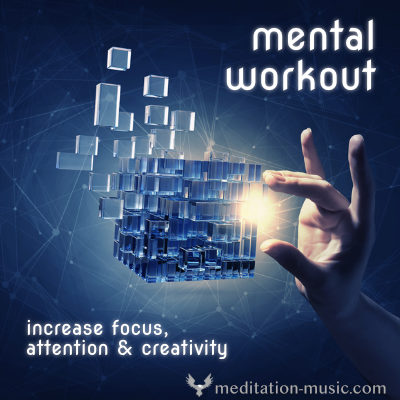Benefits of Meditation and How to Get Started
Those who seek to understand meditation and the benefits with which it can provide them have come to the right place. Although most people are familiar with the term, few know its true meaning or how to get started in a way that will offer lasting results. The following information is going to explore meditation, common myths and the top advantages of practicing it on a daily basis. The aim is to provide everyone with a clear picture of the techniques from which to choose and of what method makes the most sense for them and their needs, allowing them to move forward with confidence. Meditation is the perfect solution for those who wish to achieve a range of advantages:
- Feeling of Inner Peace
- Feeling of Relaxation
- Increasing Focus and Motivation
- Increasing Creativity
- Reducing and Managing Stress or Anxiety
- Personal and Spiritual Development
Understanding Meditation

When people move forward to uncover the meaning and benefits of meditation, they will soon learn that several types exist, and some will have trouble telling them apart or deciding which path to take. Learning the basics, however, is a good place from which to start for those who want to get the best possible results. No matter the method, meditation is about observation and focus and will reveal valuable insights. Most individuals lack a sense of awareness, and their minds are always caught up with analyzing and judging external stimulus. This constant mental activity can cloud a person's thoughts and make it challenging to see the events of life for what they are, limiting the ability to make wise decisions. Getting too caught up in personal judgments and wanting to control the outcome can distort the truth, and this problem can prevent anyone from achieving success and happiness. The worst part is that most people don't even know that they are stuck in this trap, but a moment of awareness can remove the chains that they don't even know exist. Meditation enables people to let go of their expectations and the need for external stimulation, allowing them to get a new perspective and to gain levels of peace that they once thought were impossible. Meditation involves taking a step back and assuming the role of the observer, dissolving regrets of the past and worries of the future. After successfully learning the art of meditation, people often discover that most pain does not exist in the present moment. Instead, pain often comes from picturing events of the past or future that are believed to be negative. Meditation, on the other hand, makes it possible to focus only on what is happening at the current moment, and doing so will work wonders for letting go of unpleasant thoughts and feelings.
Understanding Thoughtless Awareness and How Meditation Works
At a basic level, meditation works by allowing people to let go of their thoughts and feelings and to observe themselves. They will watch their emotional and physical feelings without judging or resisting them. Rather than forcing unwelcome thoughts away, they will monitor or peacefully let them fade, depending on the method they are using. Meditation also involves letting go of the physical tension that has been building up in the body, allowing it to dissipate. Although ignoring emotions traps them and prolongs the pain, meditation allows each feeling to run its course and to process correctly. When that happens, people can truly let go of the emotional pain that has been holding them back for longer than they care to admit. Meditation usually takes place for 15 to 30 minutes at a time, but those who are just getting started might only do it for five minutes. The idea is to turn off all distractions and to sit in a comfortable area. Some people set a timer for the duration of the session so that they won't need to keep checking the clock, which would distract them from their goal. Once someone becomes aware of the thoughts and emotions that are inside of them, they will sometimes feel uncomfortable for a short period. Those who meditate for the first time often discover that allowing trapped emotions to come to the surface and to escape causes pain, but staying with the sensation without judgment is the key to the peace and relaxation for which they have been looking. As long as people stick to their routine, they will notice the benefit in no time. Most individuals will gain an enhanced sense of relaxation after one or two sessions, but the most profound rewards will come after a month or two of commitment. As time goes on, meditating will become progressively easier, and people who remain on course will notice that they don't need as much external stimulus to feel happy. In fact, those who commit to the practice will soon realize that happiness comes from within them. The enjoyment that materialistic possessions offer is only temporary, but achieving peace, acceptance and awareness will open the doors to permanent feelings of joy.
What Meditation is Not
Before truly understanding meditation is possible, it's vital to learn what it is not and the common myths that surround the concept. This insight will make it much easier for those who want to enjoy the benefits of meditation to avoid common roadblocks.
Forced Concentration
Many people believe that the process is about forced concentration, which is not true. Although it involves focusing on a single thought, concept, point or image, concentration is not the aim. Those who try to concentrate often judge themselves for failing to do so for sustained periods of time.
Exercises and Techniques
When meditation comes to mind, people often imagine breathing exercises, poses and other techniques. But thinking of it this way causes one to lose sight of what the practice is at its core. The exercises about which most people know are simply a means to an end. Although they can help when it comes to achieving a meditative state, they are only tools that point to the real thing.
Mental Effort
The idea that reaching a meditative state requires mental effort is another myth that can prevent people from reaching their goals and getting the most from the process. Whether a person wants to explore their thoughts or achieve a state of mental silence, the desired outcome is reached by gently nudging the mind in the right direction. Those who attempt to exert mental effort do so because they are still attached to the outcome, but that attachment will make it nearly impossible to enter a meditative state.
Looking at the Benefits
The stress of daily life impacts people in ways of which they are not aware. If someone has a job interview or an appointment with a doctor, then that person will often replay the possible outcomes many times. These thoughts can trigger unwanted emotions that can harm anyone's mental and physical well-being, and most people will never spot the red flags.
Physical Benefits
When they go unnoticed, stress and anxiety can cause physical symptoms, and many people experience them for so long that they begin to accept them as facts of life, but it does not need to be that way. Having too much stress can spark headaches, muscle tension, high blood pressure and heart problems. Those who meditate each day will achieve health benefits that nobody will be able to ignore. Reduced tension, controlled blood pressure and a healthy heart are just a few of the advantages that practitioners can expect to achieve. Once they see the benefits with their own eyes, they know that they are heading in the right direction.
Mental and Emotional Benefits
In addition to causing physical harm, the impact of negative emotions can lead to lasting mental and emotional issues that can spiral out of control, leading to depression and causing insomnia. Although it's hard to see at first, taking an honest look at the situation uncovers the problems related to stress. When someone meditates regularly, they will notice negative emotions melt, and depression and insomnia are often cured along the way. Getting the proper amount of sleep each night can strengthen anyone's mental resilience, allowing the benefits to multiply.
Self-Discovery and Thoughtless Awareness
When the problems and stress of life take over and consume the mind, seeing the solutions to common problems becomes almost impossible. The more overwhelmed someone feels, the more difficult it is for them to achieve self-discovery and to overcome the roadblocks of life. As a person gains proficiency with meditation, the healing process can begin. They will find it easy to discard their attachment to a particular outcome, and that is when progress is made. People can then look at themselves honestly and find their purpose. It's vital to remember, however, that this process won't always happen overnight. Those who seek self-discovery must understand that it's a task that will never end.
Final Thoughts
When stress and other negative emotions build up inside the mind, the symptoms can spread to other areas of a person's life, impacting their well-being in a negative way. People often try to cure the stress by seeking external gratification, but that path offers nothing more than a temporary solution. Also, pursuing external pleasure will force people to become invested in the outcomes of external events, taking them even further away from inner peace and healing. No matter how troubling a person's situation might seem, meditation can offer lasting relief that will improve their quality of life. Learning to embrace everything that life has to offer removes the pain that prevents people from experiencing their full potential. Once the pain and attachment cease to hold power, people will be free to see themselves and the world as it is. The self-awareness makes it possible to move past challenges and to find a sense of fulfillment. The path that a person takes when it comes to meditation does not matter, and the important part is to accept the discoveries that will soon be revealed. The profound truth is that most of the pain that people experience is self-inflicted. The way that they worry about the future or dwell on the past causes much more suffering than any event could impose, and the same applies to feelings of joy, happiness and love. As people read these words, many of them will logically know that they contain the truth, but that is a long way from experiencing it. Those who wish to understand these concepts will need to embark on a journey of self-discovery, and meditation is the vehicle that makes it possible. Those who stick to a proven strategy are often blown away when they see the positive improvements that meditation brings to their lives, taking their mental and physical health to new heights.




